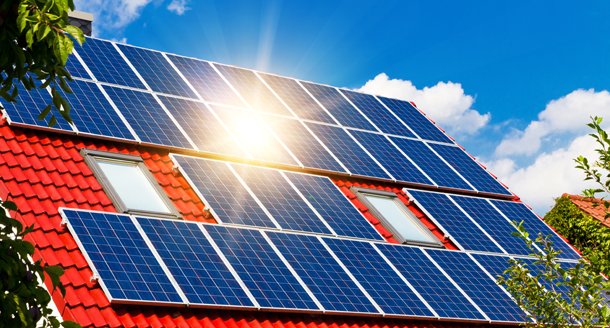The government is preparing to revise the rooftop solar buyback tariff, replacing the current net-metering system with a gross-metering mechanism. The decision comes after the existing policy reportedly imposed an Rs103 billion burden on grid consumers, with higher-income households benefiting disproportionately from cheaper electricity.
Under the proposed policy, the national grid will purchase electricity from rooftop solar consumers at Rs8-9 per unit, a significant reduction from the current Rs21 per unit. This adjustment aims to extend the payback period for rooftop solar investments from the current 18-24 months to approximately 4-5 years.
In the existing net-metering system, solar users sell excess electricity to the grid at Rs21 per unit and repurchase at Rs42 per unit during non-generative periods, such as nighttime. This setup has allowed affluent consumers to recover their investment in solar systems rapidly, while the cost has been shifted to those who rely solely on grid electricity. According to Power Division documents, this policy has increased tariffs for underprivileged consumers by Rs1.03 per unit.
The gross-metering mechanism proposed under the new policy will sell all solar-generated electricity to the grid at lower rates, preventing solar users from achieving zero electricity bills. This approach contrasts with net metering, where consumers first meet their energy needs from solar production before exporting the surplus to the grid.
The Power Division noted a significant rise in net-metering connections, with installed solar capacity increasing from 321 MW in 2021 to 3,277 MW by 2024. The number of net-metering consumers has grown to 226,440, accounting for 0.6% of the 37 million electricity users nationwide. This trend, if unchecked, could escalate the system’s burden to Rs503 billion over the next decade, officials warned.
Cities like Lahore, Karachi, Islamabad, and Faisalabad account for 80% of net-metering users, with many residing in affluent areas. The existing policy has enabled these consumers to reduce their electricity costs by up to 35% monthly while shifting a significant financial load onto non-solar users.
The proposed reforms come amid calls for a fair and balanced system. Energy experts argue that solar adoption should remain accessible but emphasize the need to align tariffs with declining solar panel prices to prevent exploitation. The National Electric Power Regulatory Authority (NEPRA) has been urged to proactively adjust rooftop solar rates to reflect market trends.
The government’s plan, which is expected to be finalized in February, seeks to create a more sustainable framework for rooftop solar integration. Officials have acknowledged the need for political will to implement these reforms, which aim to protect lower-income and underprivileged consumers from bearing the financial burden of existing policies.




